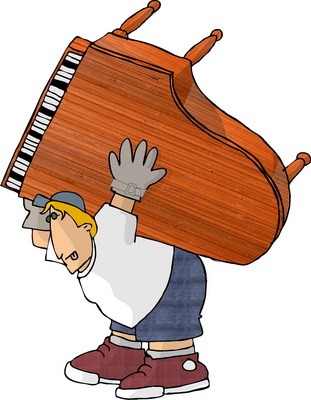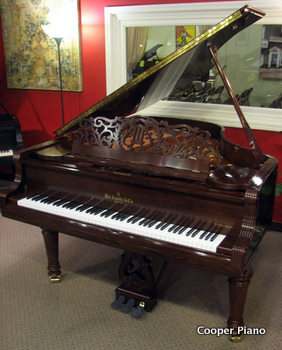
In these institutional settings – schools, churches, and colleges – pianos have to endure not only several dozens of people playing them, but oftentimes very repetitive playing as well. This creates wear and tear on certain parts of the piano at a much faster rate than any piano that has the luxury of resting in a private home. Each grand piano has thousands of working parts. When treated well, these materials can last years, even decades, before needed to be replaced. This of course means regular maintenance by skilled technicians. The important thing is to get these visits scheduled and to not let them fall by the wayside – this will only end in neglect of instruments that are quite possibly top-notch pianos, but will quickly deteriorate when no regular care is dedicated to them.

Since many people have access to these pianos, as they are often a community commodity, ground rules must be established and followed. It is almost a no-brainer, but stands to be stated regardless: food and liquids should never come near a piano, and piano moving should only be done by professionals. Following these guidelines in addition to the suggestions mentioned above will ensure a longer life for pianos in an institutional setting.


